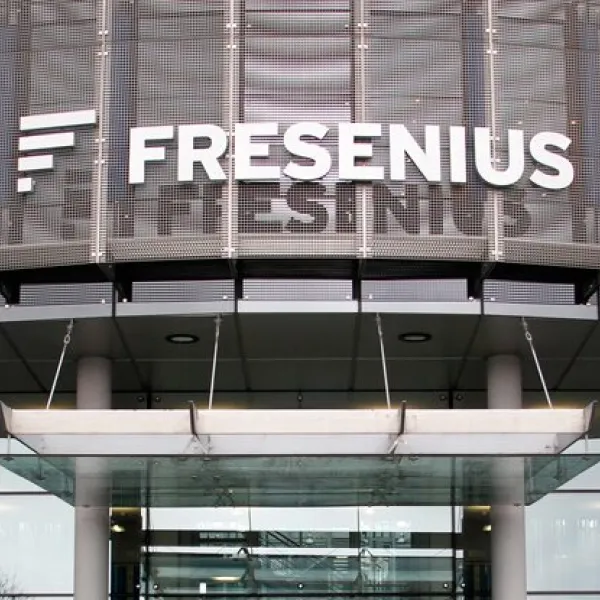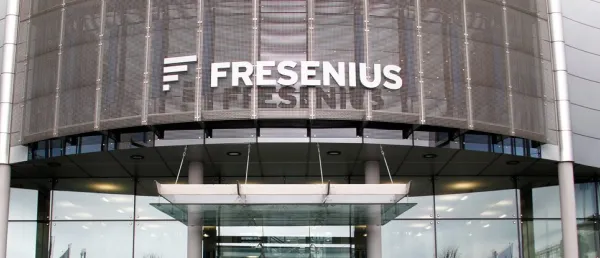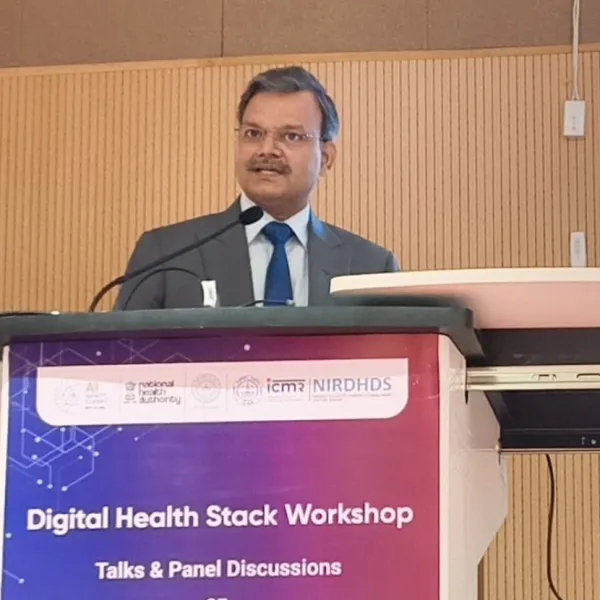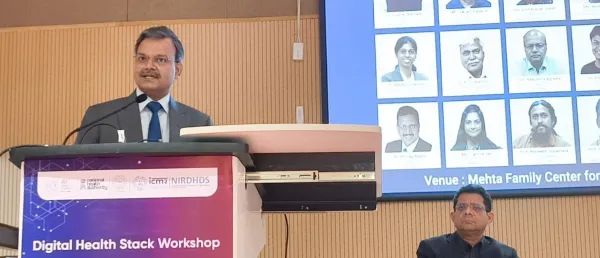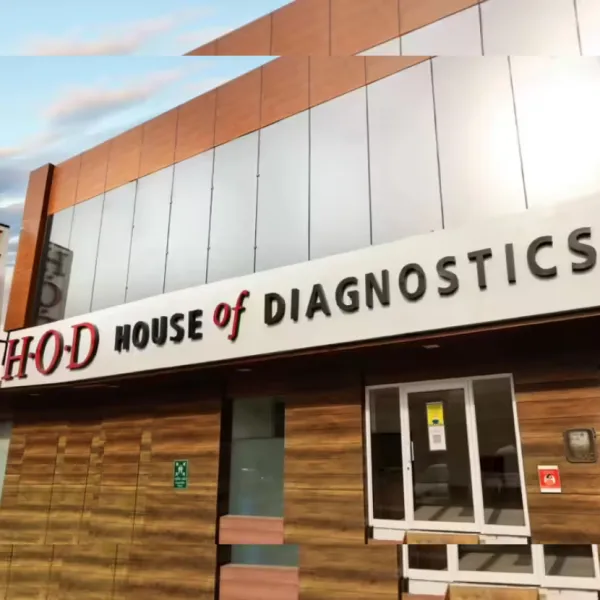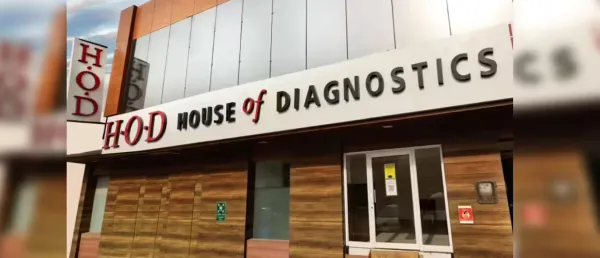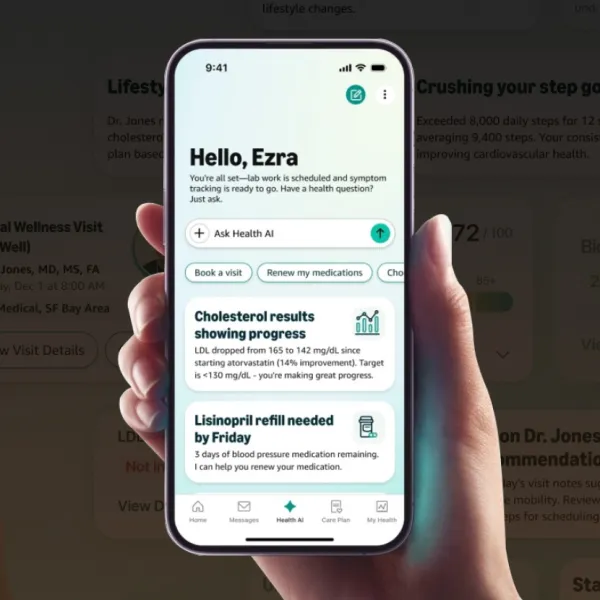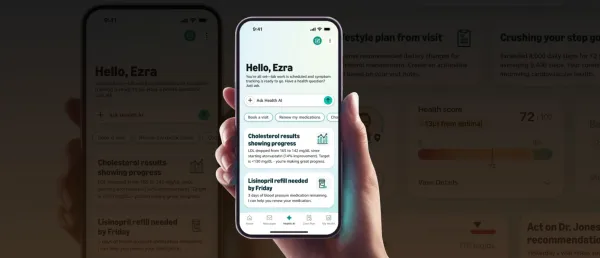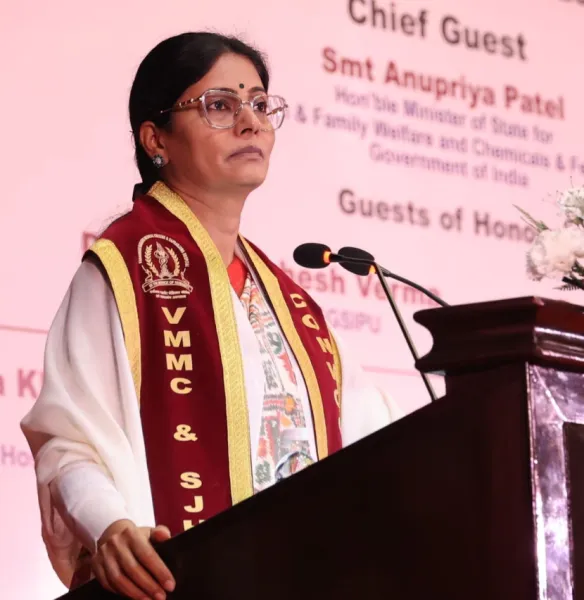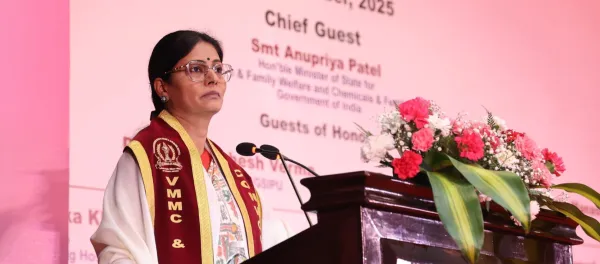Nadda Urges States to Enhance Healthcare Infrastructure Spending

Nadda dismissed opposition allegations regarding reduced allocations under the PM-Ayushman Bharat Healthcare Infrastructure Mission (PM-ABHIM).
Health Minister J P Nadda has called on state governments to allocate more funds to improving healthcare infrastructure.
Nadda further dismissed opposition allegations regarding reduced allocations under the PM-Ayushman Bharat Healthcare Infrastructure Mission (PM-ABHIM).
Speaking in the Lok Sabha on Monday during the debate on the demand for grants for the Ministry of Health and Family Welfare, Nadda outlined the government's achievements and responded to criticisms about the funding for healthcare initiatives.
Funding & Utilisation Concerns
Nadda emphasized the need for effective planning and utilization of allocated funds.
"We don't believe in just making announcements. We believe in effective planning, ensuring last-mile delivery, identifying bottlenecks in last-mile delivery, and taking steps to remove them," he stated.
The Minister challenged the opposition to address the lack of progress in healthcare spending and utilization at the state level.
According to Nadda, the previous year saw only INR 1,806 Cr spent out of a budgetary allocation of INR 4,200 Cr for the PM-ABHIM. This, he argued, reflected poorly on the execution of health infrastructure projects. "We are giving money, but it is not spent. You spend the money, we will allocate more funds if the existing funds are spent," he said.
This year, INR 3,200 Cr has been earmarked for the mission the health minister noted.
Government Achievements in Healthcare
During his address, Nadda highlighted several key government achievements.
These included increased medical colleges, measures taken to reduce out-of-pocket expenses for healthcare, and initiatives aimed at early screening for diseases like cancer and sickle cell anemia.
He presented these points as evidence of the government's commitment to improving healthcare delivery and reducing financial burdens on citizens.
In response to opposition criticisms, Nadda pointed out specific areas where the government had made progress.
He referred to the expansion of medical colleges and the introduction of various screening programs as steps towards enhancing healthcare access and reducing patient costs.
Opposition Allegations & Challenges
Nadda also addressed allegations from opposition parties regarding the reduction in funds for healthcare infrastructure.
He directly challenged Trinamool Congress members, who were protesting, to explain why the West Bengal government had not shared its dengue registry with the central authorities.
This challenge underscored the Minister’s insistence on accountability and transparency at all levels of government.
The debate on healthcare funding highlighted ongoing tensions between state and central governments regarding the allocation and utilization of funds.
Nadda’s comments aimed to shift the focus from allegations of reduced funding to the need for more effective use of the resources that have already been allocated.
The discussion around the PM-ABHIM and healthcare infrastructure remains a contention, reflecting broader concerns about health expenditure and management across various states.
Stay tuned for more such updates on Digital Health News









